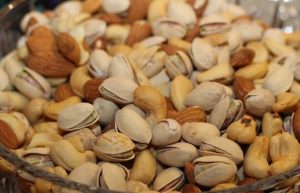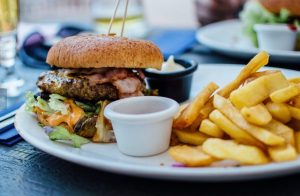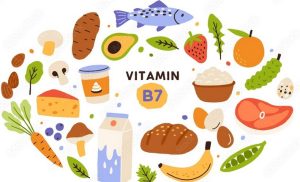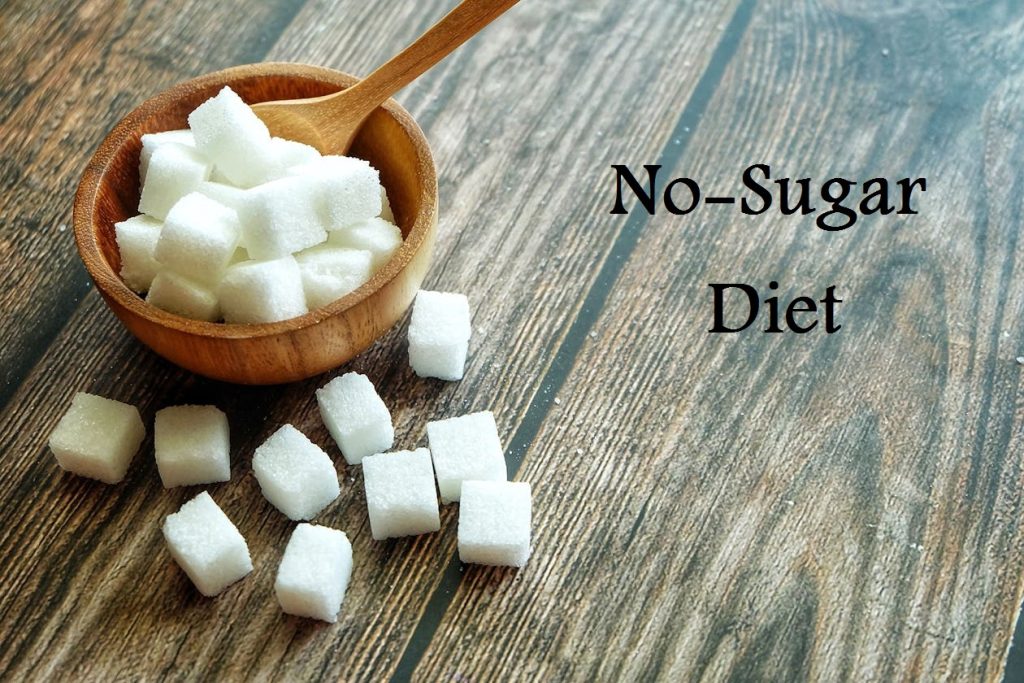
In the quest for a healthy and fit lifestyle, one of the biggest challenges many fitness enthusiasts face is taming their sugar cravings. The allure of sugary treats can sabotage even the most disciplined fitness routine. However, with the right strategy and determination, you can conquer this challenge and unlock a new level of well-being. In this article, Herbomass will explore the 14-Day Challenge without sugar, providing valuable insights and actionable tips specifically tailored for fitness girls. Let’s embark on this transformative journey together.
The Impact of Sugar:
Before diving into the challenge, it’s crucial to understand why sugar poses a significant hurdle to achieving optimal fitness goals. Sugar, in its various forms, has become an ubiquitous part of the modern diet. From table sugar (sucrose) to high-fructose corn syrup and hidden sugars in processed foods, it seems like it’s everywhere. The problem lies not only in the sheer amount of sugar consumed but also in the negative effects it can have on our health.
One of the primary concerns with sugar consumption is the added empty calories it contributes to our daily intake. These are calories devoid of essential nutrients, leading to an imbalanced diet. When you consume sugary treats, sodas, or sugary snacks, you may feel a temporary surge in energy due to the rapid absorption of sugar into the bloodstream. However, this is often followed by an energy crash, making you feel lethargic and fatigued. As a result, you might find yourself reaching for more sugary foods and drinks in an attempt to boost your energy levels, creating a cycle that’s hard to break.
Moreover, the excessive intake of sugar is closely linked to weight gain and obesity. Refined sugars are calorie-dense and can quickly add up, leading to an energy surplus. When we consume more calories than we burn through physical activity and metabolism, the excess is stored as fat. Over time, this can contribute to weight gain and obesity, which are risk factors for numerous health issues, including cardiovascular disease, diabetes, and joint problems.
Another harmful consequence of sugar consumption is its role in promoting inflammation within the body. Chronic inflammation is the body’s response to various stressors, and while it is a natural defense mechanism, prolonged inflammation can be damaging. Studies have shown that excessive sugar intake can trigger the release of inflammatory markers in the body, potentially leading to chronic inflammatory conditions and increasing the risk of various diseases.
Perhaps most concerning is the long-term impact of excessive sugar consumption on our overall health. Regularly indulging in sugary foods and beverages is associated with an increased risk of chronic diseases such as type 2 diabetes, heart disease, and non-alcoholic fatty liver disease. These health issues not only affect our physical well-being but also place a substantial burden on healthcare systems worldwide.
By eliminating sugar from your diet for a specific period, like the 14-day challenge mentioned earlier, you’ll allow your body to reset and potentially experience a wide range of benefits. During this time, your taste buds may adjust, and you may find that naturally sweet foods, such as fruits, become more enjoyable without the overwhelming sweetness of added sugars. As a result, you might discover a new appreciation for whole, nutrient-dense foods, leading to a more balanced and nourishing diet in the long run.
Moreover, cutting out sugar can lead to improved energy levels and enhanced mental clarity. Without the constant fluctuations in blood sugar levels caused by sugar intake, you may experience steadier energy throughout the day, which can positively impact your productivity and focus.
Additionally, eliminating sugar can aid in weight management and contribute to a healthier body composition. As you reduce your sugar intake, you might notice a decrease in cravings for unhealthy snacks, which can help you maintain a healthier diet and support your fitness goals.
Furthermore, reducing sugar consumption can have a positive effect on your skin’s appearance. High sugar intake has been linked to skin issues, such as acne and premature aging, due to the process of glycation – a reaction between sugars and proteins that can damage collagen and elastin, essential components for skin elasticity and youthfulness.
Overall, the 14-day challenge to cut out sugar from your diet can be a transformative experience for your health and fitness journey. However, it’s essential to be mindful of hidden sugars in processed foods, as they can sneak into your diet and undermine your efforts. Reading labels and opting for whole, natural foods can help you stay on track during the challenge and beyond.
It’s worth noting that everyone’s body is unique, and the effects of cutting out sugar may vary from person to person. Some individuals might experience immediate benefits, while others might notice gradual changes over time. If you have any underlying health conditions or concerns, it’s always a good idea to consult with a healthcare professional or a registered dietitian before making significant changes to your diet.
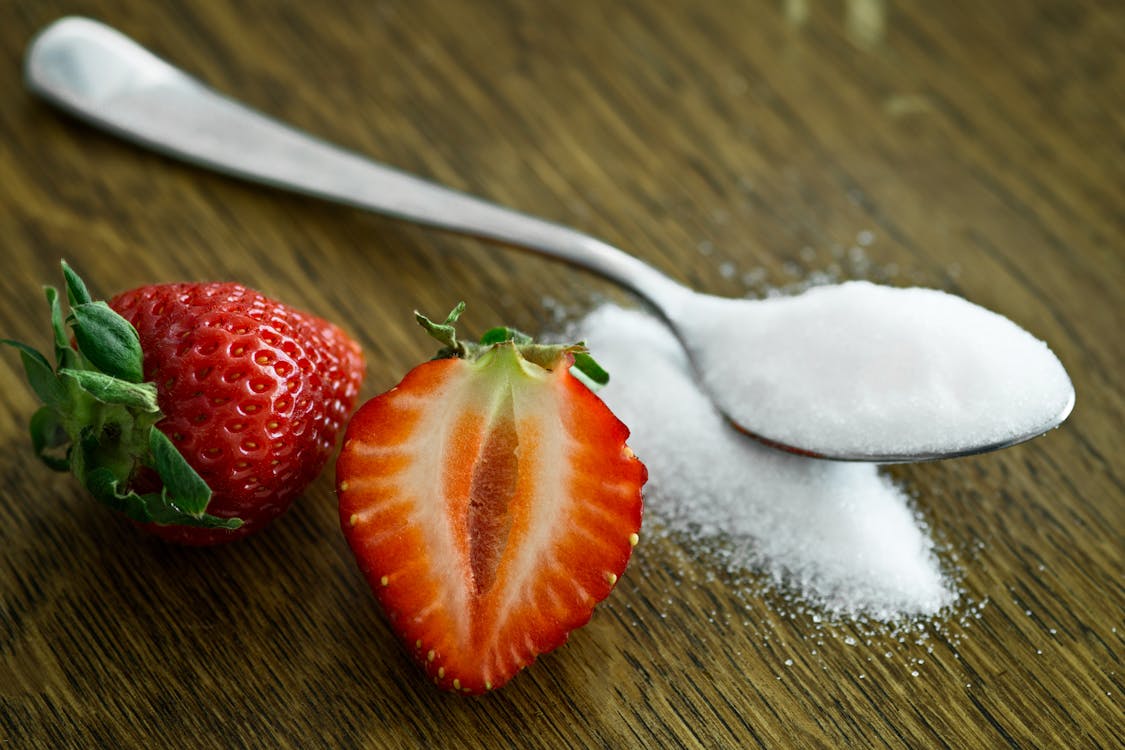
Preparing for The 14-Day Challenge:
- Clear Out Your Pantry: Begin the challenge by removing all sugary temptations from your kitchen shelves. Replace them with healthier alternatives like fresh fruits, nuts, and seeds.
- Plan Your Meals: Create a meal plan that includes whole foods such as lean proteins, vegetables, whole grains, and healthy fats. This will help you stay satiated and reduce cravings.
- Stay Hydrated: Drinking plenty of water throughout the day can help curb cravings and support your overall well-being.
Navigating Sugar Alternatives:
While the goal of the challenge is to eliminate added sugars, it’s essential to address natural alternatives that can satisfy your sweet tooth without derailing your progress.
- Stevia: A natural sweetener derived from the stevia plant, it offers a sweet taste without the negative effects of sugar.
- Fresh Fruits: Nature’s candy, fruits are packed with essential vitamins, minerals, and fiber. They provide a healthier alternative to processed sweets.
- Dark Chocolate: Opt for dark chocolate with a high percentage of cocoa (70% or more), which contains less sugar and offers potential health benefits.
Overcoming Cravings:
- Balanced Meals: Ensure each meal is nutritionally balanced, consisting of lean protein, healthy fats, and complex carbohydrates. This will help stabilize blood sugar levels and reduce cravings.
- Protein Power: Incorporate protein-rich foods such as eggs, lean meats, legumes, and Greek yogurt into your meals and snacks. Protein helps keep you feeling full for longer and minimizes sugar cravings.
- Mindful Snacking: When cravings strike, reach for healthy snacks like carrot sticks, celery with almond butter, or a handful of nuts. These options will satisfy your hunger and provide essential nutrients.
Embracing a Support System:
- Join a Fitness Community: Surround yourself with like-minded individuals who are also on a journey to improve their fitness. Engage in discussions, share experiences, and seek support when needed.
- Enlist an Accountability Partner: Having someone to share your challenges and triumphs with can help you stay motivated and focused throughout the 14-day challenge journey.
- Celebrate Milestones: Acknowledge and celebrate your achievements along the way. Reward yourself with non-food treats like a massage, new workout gear, or a spa day.
Post-Challenge Sustainability:
The 14-Day Challenge without sugar is not just a short-term fix but a springboard for long-term healthy habits. Consider these strategies to sustain your progress:
- Introduce Moderation: After completing the challenge, gradually reintroduce natural sugars and healthier sweeteners into your diet. Practice moderation and listen to your body’s response.
- Read Labels: Be mindful of hidden sugars in processed foods. Educate yourself on different names for sugar (e.g, sucrose, high-fructose corn syrup) to make informed choices.
- Regular Exercise: Combine your improved dietary habits with a consistent exercise routine. Regular physical activity boosts your metabolism, increases energy levels, and enhances overall well-being.
Conclusion:
Embarking on a 14-Day Challenge without sugar is a powerful step towards transforming your fitness journey. By committing to this endeavor, you can break free from sugar’s grip, unlock newfound energy, and achieve your health and fitness goals. Remember, the path may be challenging, but the rewards are worth it. Stay determined, stay focused, and embrace this life-changing opportunity. Your future self will thank you!


